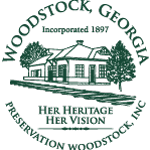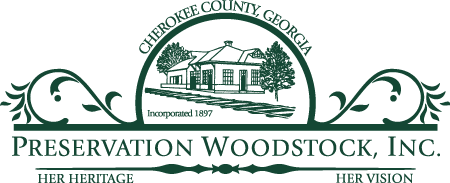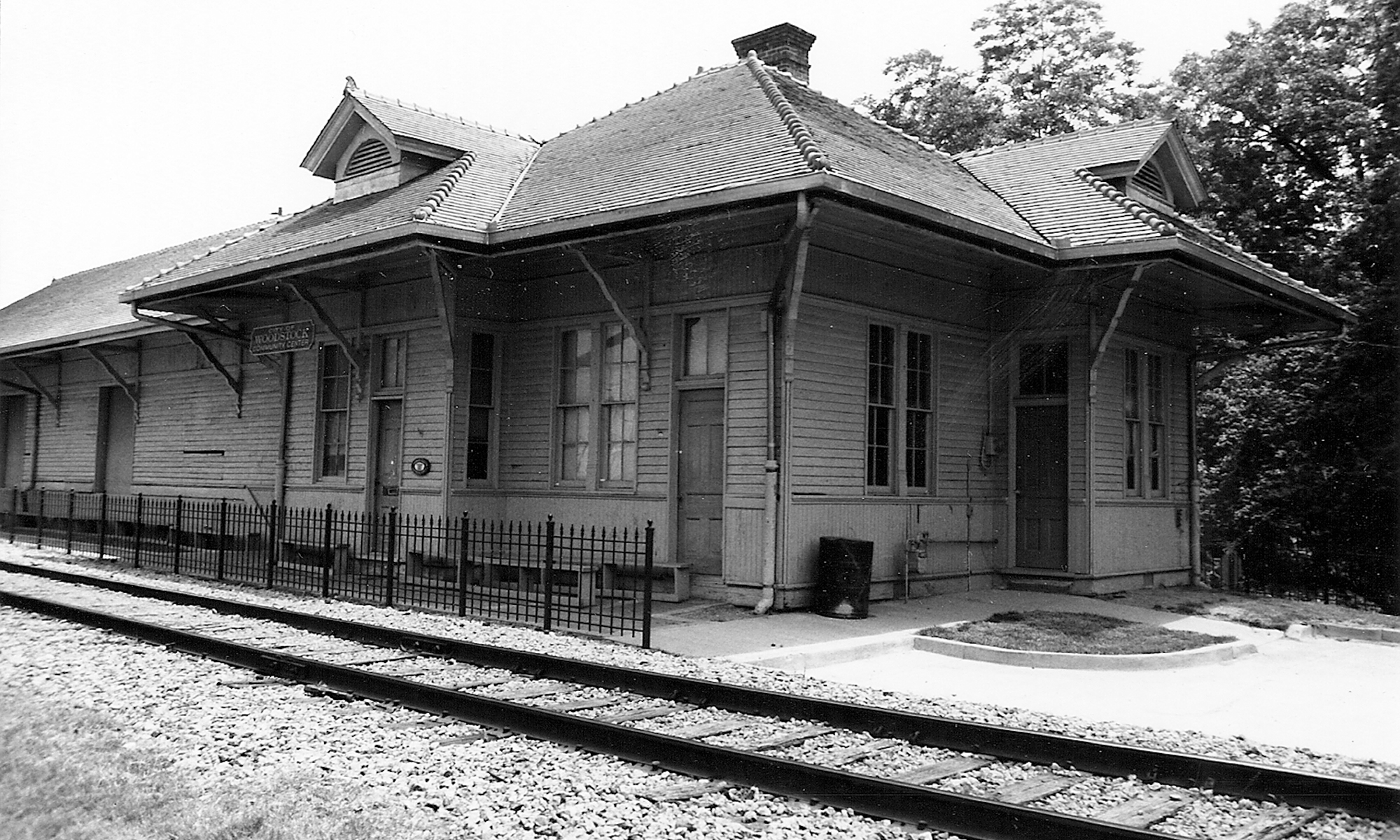First settlements… farms, roads, bridges, and mills. Early churches, including Enon Baptist, are established. First Postmaster is appointed, 1833.
Woodstock Academy, a subscription school, is established, very near this location. Businesses … general stores, livery stables … have opened.
The railroad arrives, a pivotal point in the City’s history, touching every aspect of daily life. It delivered the mail and made possible the shipment of goods and services, directly affecting the cotton market. First depot is built on the west side of the tracks.
J.H. Johnston Company, a general merchandise and cotton brokerage, opens. The business thrived, expanded to warehouses, a cotton gin, and the Bank of Woodstock.
The Woodstock City Charter is granted by the Georgia legislature on December 8th. City limits are set at ¾ mile north and south of depot, and ½ mile east and west of railroad tracks. Nathan Fowler is first mayor.
The Bank of Woodstock is established.
Woodstock City School is chartered. The building would be erected later on land purchased from the Will Dean family. Dean’s Drug Store opens.
A new depot (combination freight and passenger) is built on the east side of the tracks. The structure would later be placed on the National Register of Historic Places, the only such listing in Woodstock.


